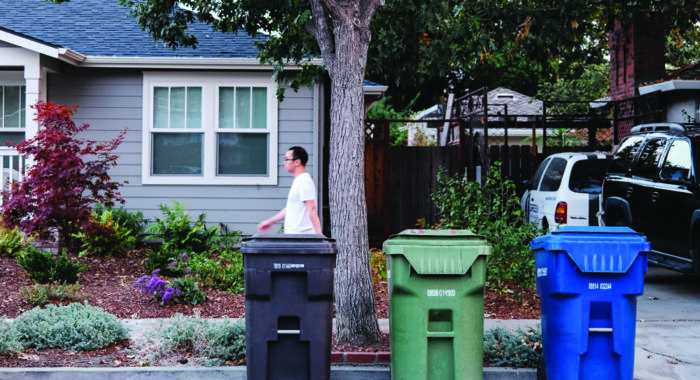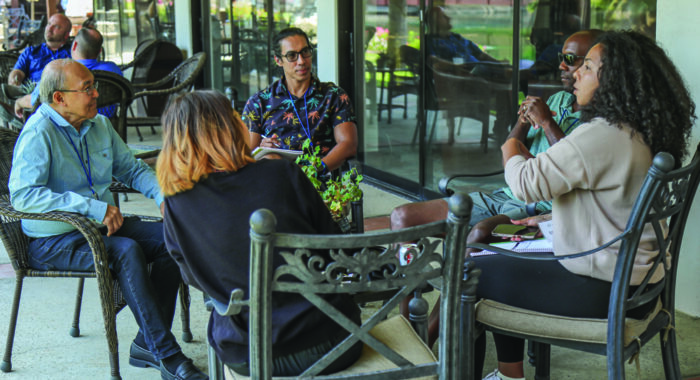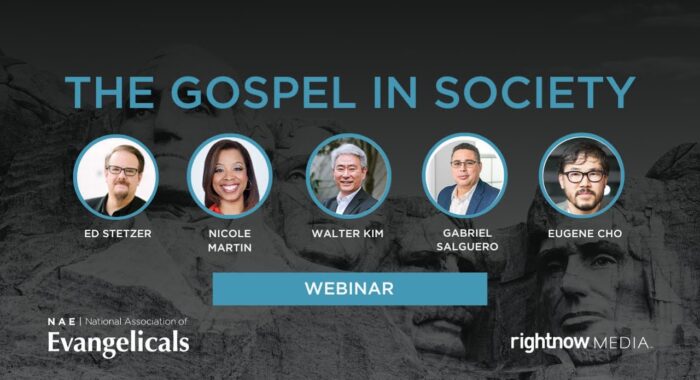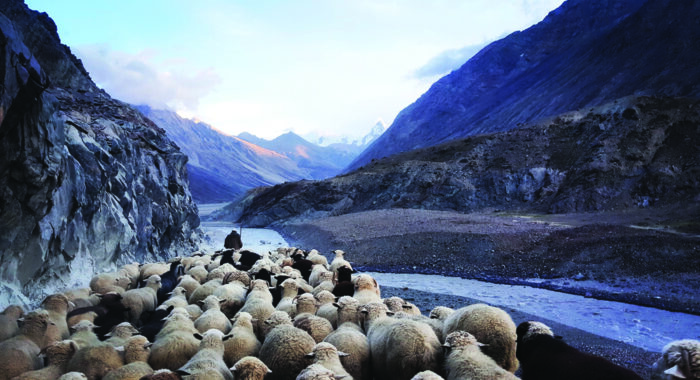
Does God care about the world he made? The answer is obvious from the very first pages of the Bible, which opens with two majestic chapters that paint a stunning picture of God’s love, pride and personal engagement with his creation — both the heavens and the earth. We see sun, moon and stars, land and sea, plants and animals, all pronounced “good.” And to crown it all, humans, created in God’s image and pronounced “very good,” are given a special role in caring for the rest of creation.
The mandate to care for God’s creation counsels against doing things that would harm the created order, including things that would threaten the climate. Rather, the mandate calls on us to do things that would improve and further develop God’s creation, including adapting to our changing climate. We are to be wise stewards and managers; we are not owners.
Our responsibility to care for God’s creation leads us to study God’s world in all its glorious complexity — the whole enterprise of science, rightly understood. Many people perceive tension — and sometimes even hostility — between faith and science. But there’s more agreement than many realize. The NAE publication, “When God and Science Meet,” is a good starting place. Using climate science to guide adaptation is one way we fulfill our stewardship responsibilities under God.
When scientific observation and analysis warns of a changing climate, threatening our continued prosperity and even survival, and pointing to human activity as a contributing cause, careful readers of the Bible will not be surprised. The Bible is full of references to climate, and particularly to rain, seen as the gracious gift of God, and to drought, frequently attributed to human disobedience.
For example, in Leviticus 26 we read:
“If you follow my decrees and are careful to obey my commands, I will send you rain in its season, and the ground will yield its crops and the trees their fruit. Your threshing will continue until grape harvest and the grape harvest will continue until planting, and you will eat all the food you want and live in safety in your land” (Leviticus 26:3–5).
Conversely, Deuteronomy 11 offers this warning:
Be careful, or you will be enticed to turn away and worship other gods and bow down to them. Then the Lord’s anger will burn against you, and he will shut up the heavens so that it will not rain and the ground will yield no produce, and you will soon perish from the good land the Lord is giving you (Deuteronomy 11:16–17).
This prediction was fulfilled during the reign of King Ahab, when rampant idolatry and child sacrifice led to a multi-year drought and famine (1 Kings 16–19). Thus, the link between human behavior and climate is established, though of course the connection is complex. It is possible to connect the dots between overworking the land, declining fertility and reduced precipitation. Spiritual issues of greed and pride come with an ecological price tag.
In another case, the Egyptian Pharoah had a dream predicting years of bumper crops followed by famine but without any accompanying word of judgment. Instead, God guided Joseph to devise an adaptation plan — building storage facilities where surplus grain could be conserved during good years for distribution during times of drought (Genesis 41).
In preparation for the world’s most famous extreme weather event, God designed an adaptation plan for Noah, directing him to construct an ark that saved the lives of eight human beings and a host of animals (Genesis 6:13–22). Noah no doubt faced more than his share of climate skeptics who questioned the need for an ark, but his obedience preserved both humans and animals from extinction and earned a place in biblical history as an exemplar of faith (Hebrews 11:7).
But how should we respond when we find ourselves facing a climate crisis, which is already impacting human health, livelihoods and infrastructure, with much worse conditions still to come? The creation mandate to “be fruitful and multiply” (Genesis 1:28) points to the need for a robust climate adaptation agenda. If we know that winter is coming, we should follow the example of the biblical ant:
Go to the ant, you sluggard;
consider its ways and be wise!
It has no commander,
no overseer or ruler,
yet it stores its provisions in summer
and gathers its food at harvest
(Proverbs 6:6–8).
The implication is that a well governed society should be able to do better.
A biblically sound adaptation agenda will prioritize the needs of the most vulnerable. Few biblical topics receive as much attention as poverty. Climate change affects everyone, but the impacts are not evenly distributed. The NAE publication, “Loving the Least of These,” examines how climate adaptation is helping the poorest people in the world.
The biblical laws about land stewardship explicitly link care for the land and care for the poor:
“For six years you are to sow your fields and harvest the crops, but during the seventh year let the land lie unplowed and unused. Then the poor among your people may get food from it, and the wild animals may eat what is left. Do the same with your vineyard and your olive grove” (Exodus 23:10–11).
Charitable organizations like World Relief, World Vision and many others are implementing effective climate adaptation programming with transformational results. Governments also have significant responsibilities under God. Advocacy organizations like the Evangelical Environmental Network are playing a key role in building public support and calling on our elected leaders to uphold these responsibilities.
In Psalm 72 a new king is crowned, and care for the poor looms large in his governing agenda:
Endow the king with your justice, O God,
the royal son with your righteousness.
May he judge your people in righteousness,
your afflicted ones with justice.
May the mountains bring prosperity to the people,
the hills the fruit of righteousness.
May he defend the afflicted among the people
and save the children of the needy;
may he crush the oppressor (Psalm 72:1–4).
In a time when the prosperity, health and even the lives of millions of people, including many of the world’s most vulnerable people are threatened, climate adaptation is an integral part of just governance. In a world characterized by great disparities of wealth and power, special concern for those least able to adapt on their own is morally compelling. To whom much is given, much will be required.
We need bipartisan cooperation, public-private partnerships and technological innovation. What we are doing is saving lives and improving human health. By continuing and strengthening this work, we can leverage a brighter future for all.
This article was adapted from a presentation by Galen Carey on March 20, 2024, at a briefing for Capitol Hill staff.
Share your thoughts on climate adaptation with Congress



 View All Articles
View All Articles 




























